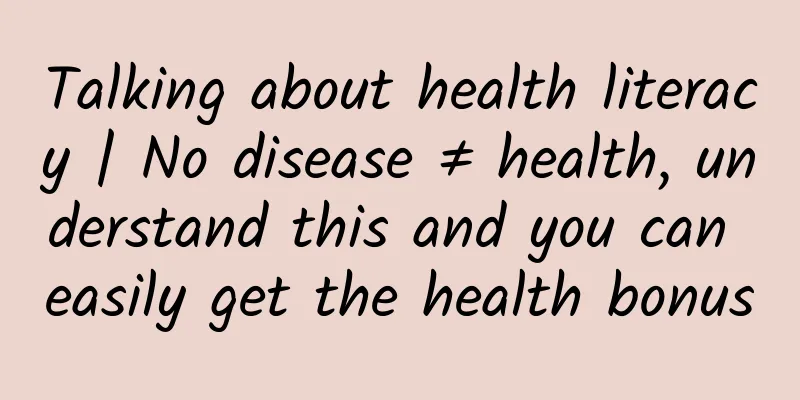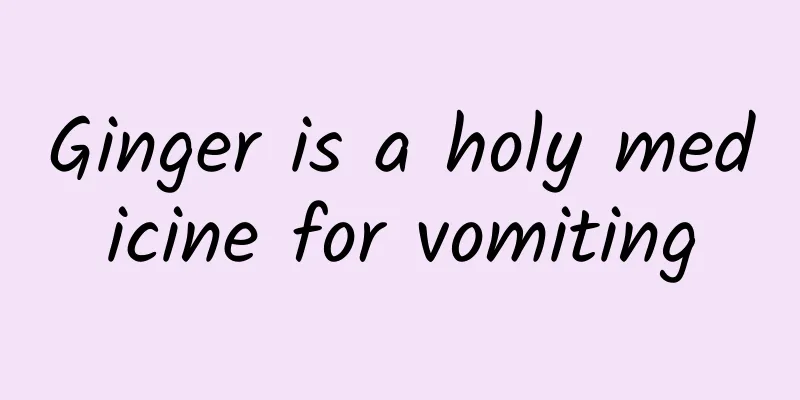Talking about health literacy | No disease ≠ health, understand this and you can easily get the health bonus

|
Health literacy is an important indicator for measuring health quality, which directly affects people's life and quality of life. In order to continuously improve the level of health literacy of the whole people and help build a healthy China, in May 2024, the National Health Commission revised and issued the "Health Literacy of Chinese Citizens - Basic Knowledge and Skills (2024 Edition)" (referred to as "66 Articles on Health Literacy"). Starting today, this newspaper has specially launched the column "Comic Talks on Health Literacy", which interprets the new version of the "66 Articles on Health Literacy" through expert explanations, cartoons, etc., so that the general public can pay more attention to their health, maintain their health, and continuously improve their life, quality of life and happiness index. Do you think that not having a fever or coughing means you are healthy? That is underestimating the great knowledge of life! "Article 1 of Health Literacy" states: Health is not merely the absence of disease or infirmity, but a state of physical, mental and social well-being. Prevention is the most effective and economical means of promoting health. How to understand the content of Article 1? Today, we invited Lin Minyu, Director of the General Medicine Department of Fuzhou Second General Hospital, and Lin Yongchao, Director of the Psychological Rehabilitation Center of the Neuropsychiatric Prevention and Treatment Institute of Fuzhou Second General Hospital, to interpret it for everyone. Health is "living well" "Health is not 'being free of disease', but 'living well'!" Lin Minyu introduced that the traditional concept is that "health means being free of disease, being strong, able to eat and sleep well". However, with the development of social economy and the improvement of people's cognition, it is gradually discovered that health is not only about being free of disease and not being weak, but also includes three aspects: physical, psychological and social adaptation. The first of the "66 Articles of Health Literacy" reminds us to pay attention to the multi-dimensional definition of health. Good health: It is manifested as a strong physique, normal function of various organs, and no discomfort. This is the foundation of health and an aspect that people pay close attention to. Mental health: refers to a good mental state, including the ability to properly understand and evaluate oneself and the people and things around, have harmonious interpersonal relationships, be emotionally stable, act purposefully, be able to cope with stress in life, be able to study, work and live normally, and contribute to family and society. Mental health is equally important, it affects people's thinking, emotions and behavior. Social adaptation: refers to maintaining balance and coordination between individuals and the environment, society and interpersonal communication through self-regulation. Individuals should take the initiative to respond to environmental changes, actively adapt to the ever-changing natural and social environment, and build harmonious interpersonal relationships. Good social adaptation is an important part of health, which helps people survive and develop in society. "Health is like a three-legged stool." Lin Yongchao said that physical health is the wooden leg that can carry heavy objects; mental health is the sponge leg that can buffer pressure; social adaptation is the spring leg that can adjust flexibly. If any one of the legs is missing, the stool of health will fall over! He cited two real examples from his life - one is Ms. Li, who goes to the gym every day and has a body like an athlete, and her friends circle is full of photos of her with abs. But in fact, she can't sleep all night, and she is worried about work. She finds excuses to turn down her sister's invitation to eat hot pot. This state of looking healthy but actually making her sick is now common among many white-collar workers - there is nothing wrong with the physical examination, but people just live in a twisted way. Another is Lao Liu, a gatekeeper in the neighborhood next door, who takes insulin every day because of diabetes, but lives a very bright life. He teaches old men and women how to do Tai Chi in the morning, and leaves a door light on for young people who work overtime at midnight. In his words, "I am not afraid of being sick physically, but I am most afraid of being sick in my heart." "So, when it comes to health, it's not about who has the best physical examination report. When the light in your heart is bright, your life will naturally be bright," said Lin Yongchao. So, how to achieve health? The two experts suggest: In terms of physical health, eat a balanced diet, exercise moderately, get enough sleep, and have regular physical examinations. In terms of mental health, maintain a positive attitude, learn to manage emotions, and seek social support. In terms of social adaptation, cultivate interests and hobbies, actively participate in social activities, and establish good interpersonal relationships. Prevention is the most effective Article 1 of the “66 Articles on Health Literacy” also emphasizes the importance of prevention in promoting health. "Our ancestors have long told us: 'The best way to treat illness is to prevent it before it happens', 'Prevention is better than cure', and 'Prepare for a rainy day', but modern people prefer to 'mend the fold after the sheep have been lost'." Lin Minyu smiled and made an analogy, "Prevention is like putting on a 'golden bell' for health, while treatment is like practicing an 'iron shirt' at the last minute. It's obvious which one is more cost-effective!" She introduced that "prevention first" is the traditional health care concept of the Chinese nation and the health and wellness policy that my country has always adhered to. At present, my country is facing the dual threats of major infectious diseases and multiple chronic diseases. Whether it is infectious diseases or chronic diseases, the main Or it is related to personal hygiene habits and lifestyle. A large number of practices at home and abroad have proved that adhering to prevention first and developing a civilized and healthy lifestyle is the preferred strategy and measure to prevent infectious diseases and chronic diseases, and is the most effective and economical means to promote health. However, in reality, many people, in the process of pursuing health, often only focus on treating diseases and ignore the importance of preventing diseases. Take influenza as an example. Every autumn and winter, the influenza virus always loves to visit everywhere. In fact, as long as you get a vaccination in advance, wash your hands frequently, and wear a mask to build a wall, you can keep this "uninvited guest" away. These measures are not only low-cost, but also effective, and are much more economical than going to the hospital for treatment after you get sick. "Prevention is not a slogan, but an action." Lin Minyu urged everyone to set a small goal for themselves starting today - walk 1,000 more steps a day, eat less takeout once a week, and do a health self-test once a month. "Remember, health is not something you wait for, but something you prevent!" |
>>: The "life channel" at the critical moment! Unveiling the mystery of "tracheotomy" for you
Recommend
The puerperium usually lasts for several weeks.
There is a period of recovery after giving birth ...
Here are some things you need to know about cardiac ultrasound examination
When you have symptoms of heart discomfort, a car...
Postpartum wrist pain, this can remedy
There is a saying that you must be careful if you...
Can I take cephalosporin for breast pain?
Some women may feel nipple pain during pregnancy....
What are the consequences of donating blood during menstruation?
What effects does donating blood during menstruat...
Is it good to eat Wogan often? Why is it called Wogan?
Wogan is a late-maturing citrus variety. This var...
If you have this kind of people around you, your risk of cancer may increase
Is there anyone around you who smokes? Have you e...
The pros and cons of fitness for girls
Fitness exercise is a very popular fitness method...
Nielsen: The “Battle of the Sexes” on the Mobile Internet
The word “innovation” is a happy word for consume...
How to calculate the menstrual period during withdrawal bleeding
Withdrawal bleeding can have a great impact on wo...
What are the calcium supplement recipes for pregnant women?
If pregnant women want to supplement calcium, the...
Why do mature follicles not ovulate?
Ovulation is a normal physiological phenomenon of...
How to stop coughing quickly during pregnancy
Many people have experienced coughing. We all kno...
What are the landmark buildings in Xishuangbanna, Yunnan? Guide to self-driving tours to Xishuangbanna
Xishuangbanna, in ancient Dai language, is called...
![[Medical Q&A] What is the difference between prohibited, taboo, and cautious use in drug instructions?](/upload/images/67f0fc6f8d843.webp)








